The Gondoliers
Information
- Date
- 29th February 2024
- Society
- KASJOG (Knaphill & St Johns Operatic Group)
- Venue
- The Rhoda McGaw Theatre, Woking
- Type of Production
- G&S
- Director
- Peter Melville
- Musical Director
- David Chapman
- Written By
- WS Gilbert and Sir Arthur Sullivan
The Gondoliers, or The King of Barataria, was premiered at the Savoy Theatre in 1889, and was the last opera to be produced before the rift caused by an unnecessary quarrel between Gilbert, Sullivan, and D’Oyly Carte. As in so many G and S works it lampoons snobbery in all walks of society. It ran for 554 consecutive performances and there was a performance for Queen Victoria at Windsor Castle. It contains of course the famous lilting song ‘Take a Pair of Sparkling Eyes’, which many feel to be one of Sullivan’s finest airs.
The Rhoda McGaw Theatre is part of Woking’s Peacock Centre. It has comfortable raked seating, one always has an excellent view of the stage.
The well-designed programme contained a synopsis, a glossary, and some interesting ‘trivia’ about the work and about Gilbert and Sullivan themselves. There were good cast and director profiles, a piece on KASJOG’s history, rehearsal photos, and the useful list of past productions.
Costumes were, in the case of the ladies, pretty Dirndl style dresses with aprons, in all manner of colours. The gondoliers, of course, wore black and white striped tops with knee breeches. The Spanish nobles were fairly finely clad, though not too lavishly, we were told, as they were short of cash. The Duchess herself wore a beautiful wine-red gown and jaunty black hat and wore dark gloves. Her daughter wore a pretty yet fairly simple gown. The Duke, of course, sported a wig, red and gold outfit, and buckled shoes. Later in the palace scenes, Mario and Giuiseppe were clad in fine golden outfits, one had buckled shoes, the other had a buckle problem, which amused.
The first act was set in Venice, with a fine backdrop of the Doge’s palace at St Mark’s Square. A palace interior was in place for the second act. Bunches of flowers, two small ukelele type instruments, trays of drinks for the ball scene, provided the props. A gondola which moved across the stage was also used.
David Chapman conducted the 9-piece orchestra very well, they produced a good sound, though at times the brass section seemed a trifle too loud, obscuring some of the witty text.
The production opened in a mysterious way. During the overture a woman wearing a hooded black cloak appeared, clutching an object, that as she occasionally caressed and soothed it, was revealed to be a baby, which was then passed to a gondolier. We then met the gay contadine (peasants) and the gondoliers, who seemed to have no care in the world, save for Marco and Giuseppe. Their concern was the lack of a bride. Through a game of blind man’s buff, with a certain amount of peeking, this problem was solved, as Tessa was chosen by Giuseppe and Gianetta by Marco. Thus were four of the main characters gaily introduced to us. And characters they were too. Excellent performances from Anne Crow (Tessa), Giselle Thorne (Gianetta), Edward Bellett-Travers (Giuseppe) and Ivan Cosmai (Marco).
The Spanish Duke of Plaza-Toro, his wife and daughter, and Luiz their drummer, then appeared. The Duke was well-played by Michael Crow in a bumbling sort of way, whilst Sue Prior was marvellous as his very feisty wife – she was in fine voice too. Casilda, their daughter, was portrayed well by Sara Cromwell, embarrassed by their penury, her lack of fine clothes, and totally outraged at the news that she was already married to a prince she had never seen, especially as she and Luiz were madly in love. She plays the dutiful daughter, however, and puts an end to her relationship with Luiz, which seemed sad, as Luiz was a real character, a kind and loving person, as played by David Saunders.
Matthew Lawson gave a fine, robust performance as Don Alhambra de Bolero, the Grand Inquisitor, who had stolen the baby prince all those years ago. Imposing in black, he held the stage, though of course later on, as things became more complicated, he wore a softer, more puzzled air.
Director Peter Melville had tweaked the lyrics to some of the songs to bring them very amusingly up to date. There were many musical highlights, of course. The lilting number ‘List and Learn’ showed us that we were in good hands with the fine chorus. ‘In Enterprise of Martial Kind’ was a great performance by the Duke. Giuseppe amused us with an energetic rendering of ‘Rising Early in the Morning’. Marco delighted us with ‘Take a Pair of Sparkling Eyes’. Don Alhambra gave us an excellent ‘There Lived a King’.
The whole ensemble were a joy to behold in the Cachuca, which reappeared to close the performance. Such joyous music and well-choreographed dancing.
Thank you, KASJOG, for brightening up a very dull and wet February.
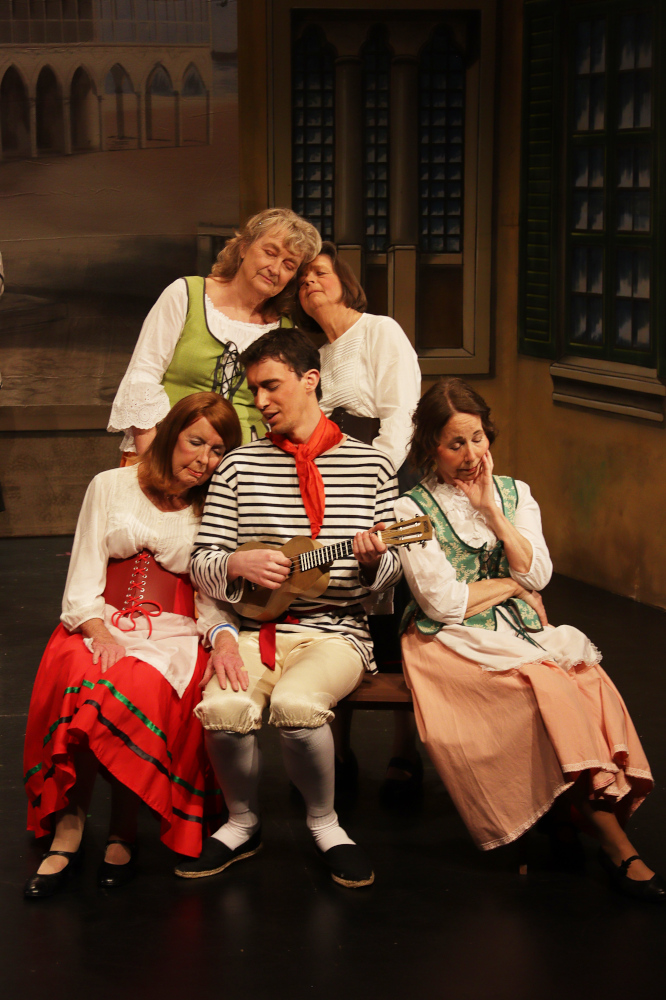 |
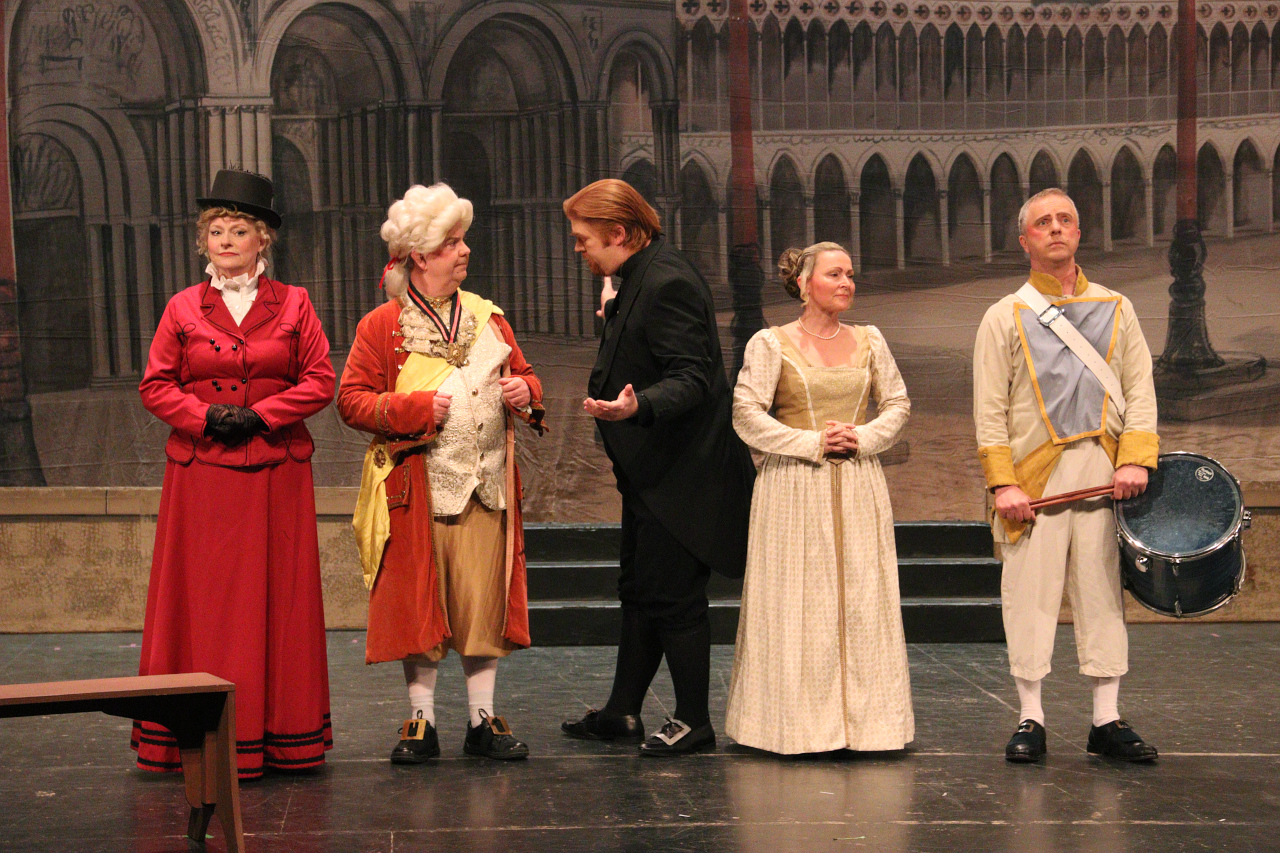 |
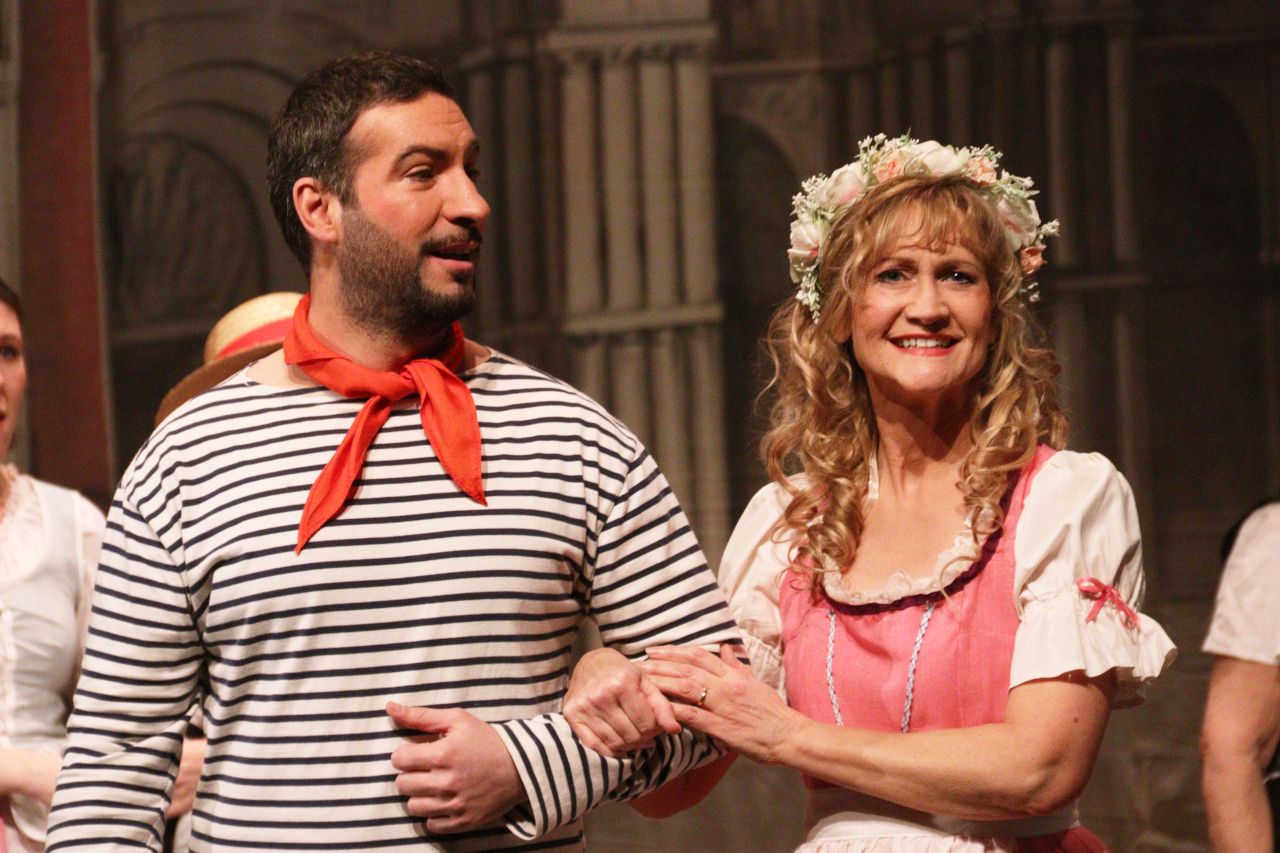 |
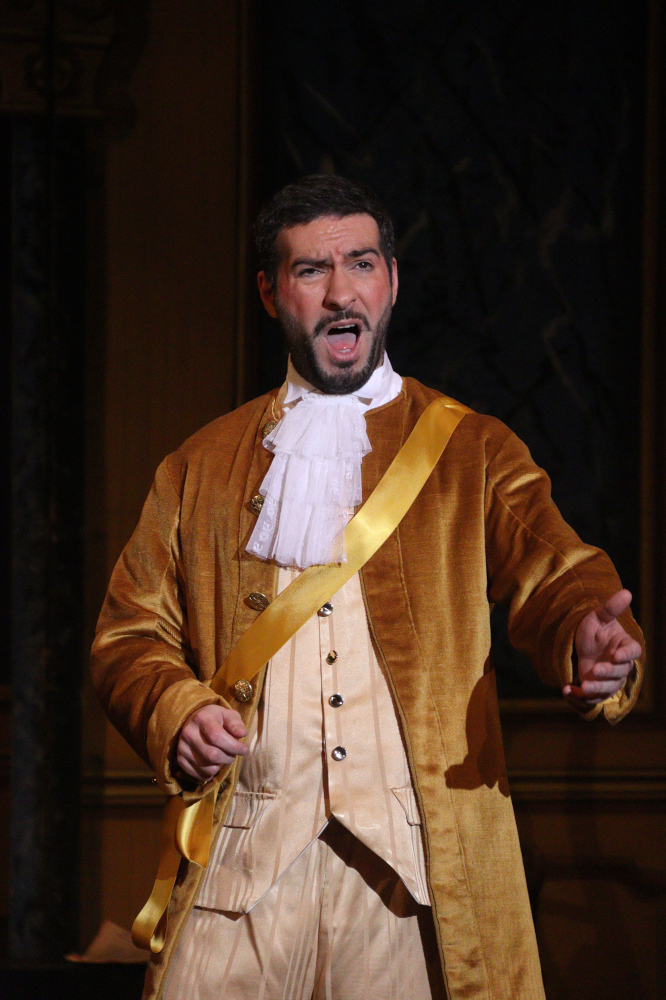 |
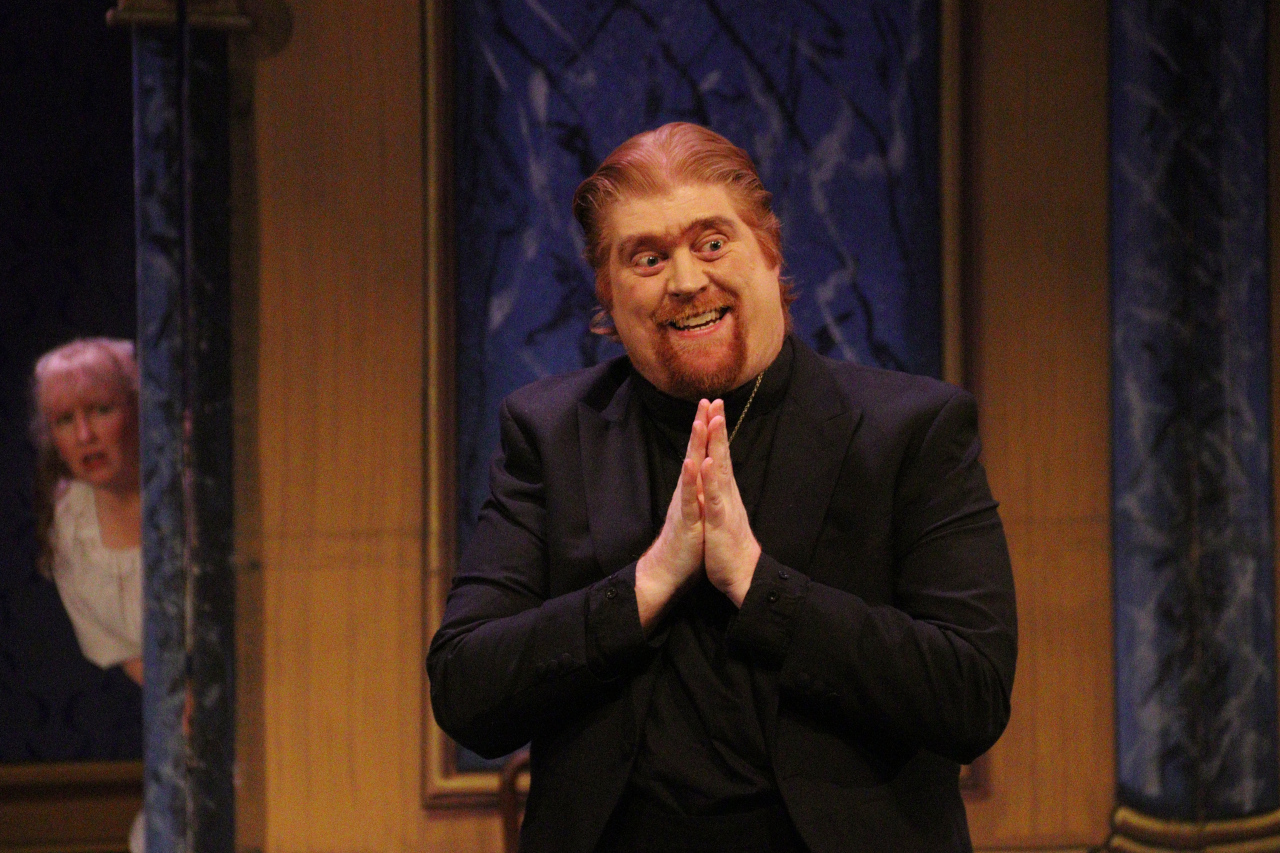 |
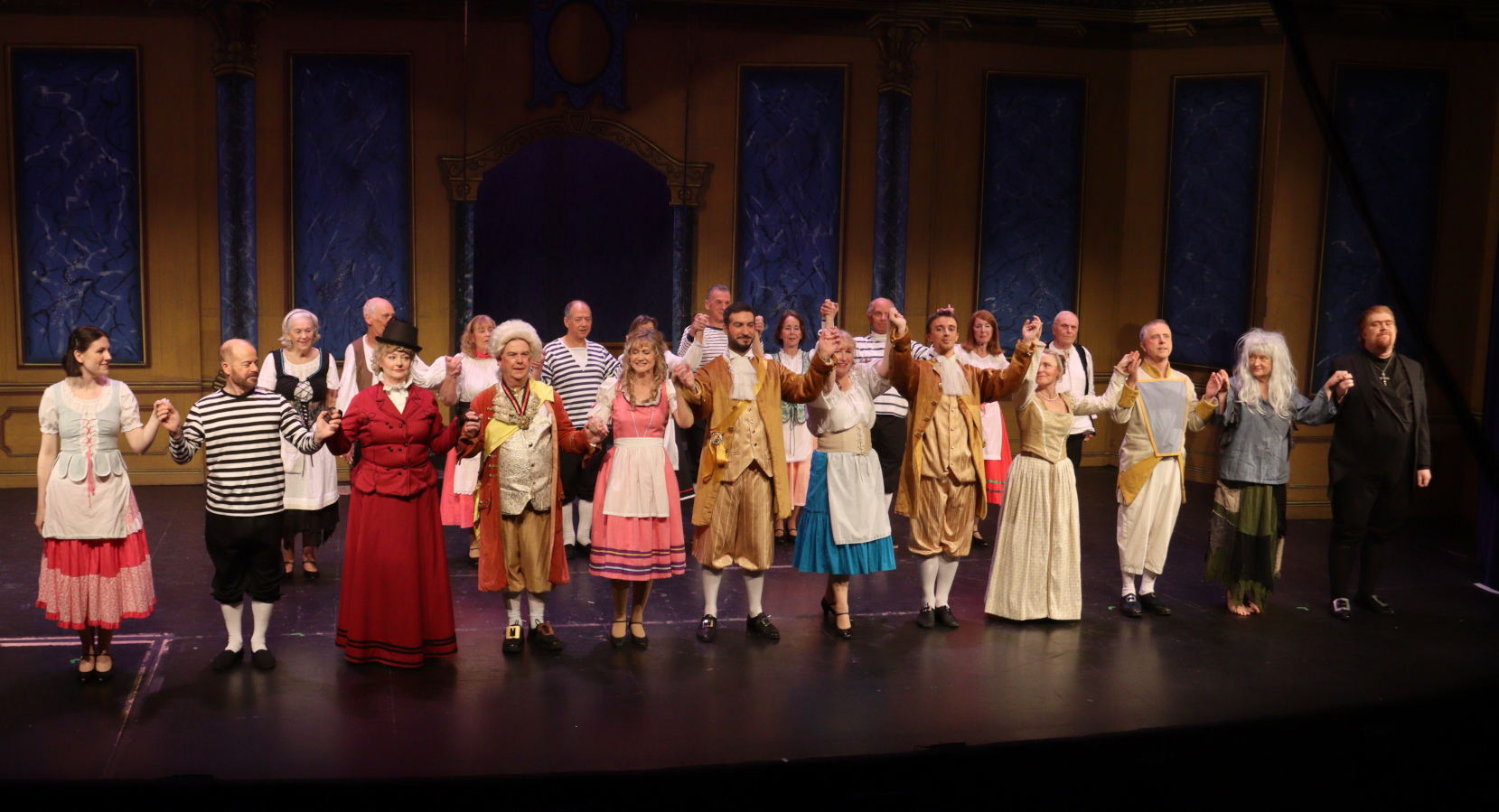 |
© NODA CIO. All rights reserved.

 Show Reports
The Gondoliers
Show Reports
The Gondoliers